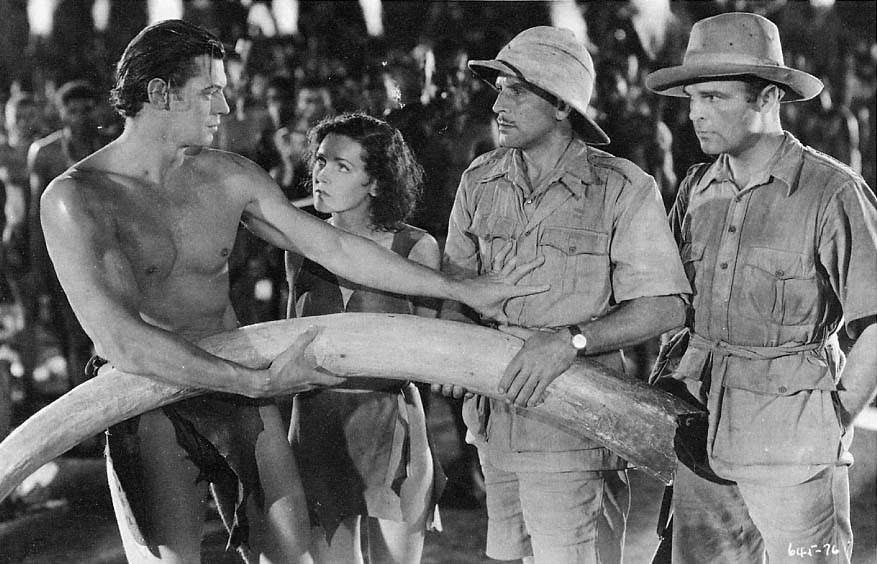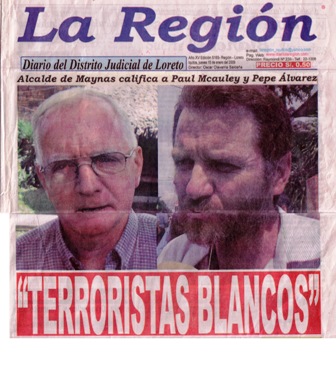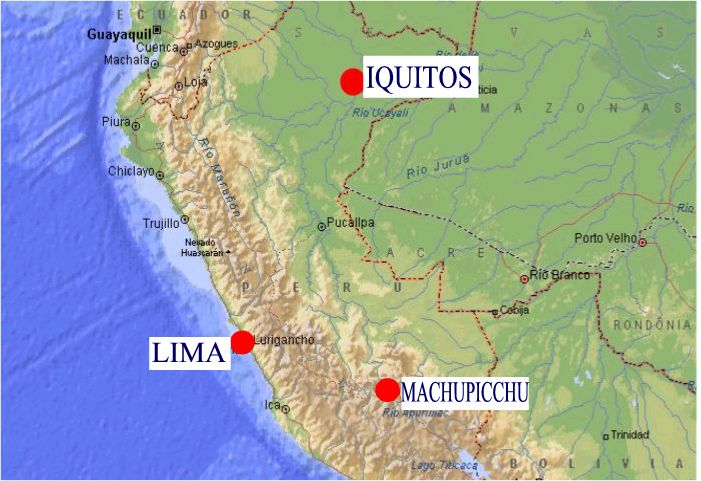“Tarzan Agitator” Paul McAuley To Be Expelled by Peru
posted on July 5th, 2010 in Amazon Jungle, Indigenous Rights, Peru
(Note: updates follow the article below)
Peru to expel British ‘Tarzan agitator’ Paul McAuley
Missionary told to leave after helping Amazon tribes resist incursion of oil, gas and mining firms into the rainforest
By Rory Carroll
The Guardian
July 2, 2010
Peru has ordered the expulsion of a British missionary who was dubbed a “Tarzan agitator” for helping Amazon tribes to resist the incursion of oil, gas and mining companies into the rainforest…
The government has told Brother Paul McAuley, who runs an civil association in the jungle town of Iquitos and promotes indigenous rights, to leave Peru within seven days and never return.
The interior ministry revoked his residency permit on the grounds he has participated in political activities “such as protest marches and other acts against the Peruvian state which constitute a breach of public order”.
The expulsion would mark an abrupt end to the campaigning of a Briton revered by indigenous groups and reviled by the authorities and sections of Peru’s media, which in addition to “Tarzan” has branded him a “white terrorist” and “incendiary gringo priest”.
Brother Paul McAuley (left) branded as a “white terrorist” in Peru newspaper
McAuley said he would fight the expulsion. “I am heading to my office now to see if it’s possible to appeal. I’m not sure what’s going to happen,” he told the Guardian today. “I received the order yesterday so I’ve got six days left.”
One tribe offered to hide him in its forest village and a Peruvian woman offered to marry him so he could get a visa. “The support has been extraordinary but I’m going to fight this legally. I’m not going to stay if I’m not allowed,” said McAuley.
The 62-year-old, a lay member of the Catholic De La Salle teaching order, is a high-profile opponent of government efforts to parcel up three-quarters of Peru’s rainforest for oil, gas and ethanol.
Peru is home to 70 million hectares of Amazon, second only to Brazil. Deals worth billions of dollars have brought in helicopters, barges and pipelines and raised expectations of being a net oil exporter.
“Peru’s government are clearly determined to brook no opposition to their plans to carve up the Amazon. The government has already initiated a campaign of persecution against indigenous leaders. Now it appears to be going after their allies,” said David Hill of the advocacy group Survival International.The interior ministry did not immediately respond to request for comment.
The Portsmouth-born McAuley has travelled the Amazon helping indigenous activists to protest the incursions and set up a civil association, Red Ambiental Loretana, in the humid rivertown of Iquitos in Loreto, a northern region bordering Ecuador. He travels on a scooter and by boat.
The missionary was awarded an MBE [Order of the British Empire] for setting up a school in Peru’s capital, Lima. Had he not already given it away some years ago he said he would have sent it back to the Queen to protest British companies’ involvement in the Amazon. He has embraced elements of Amazonian spiritual belief based on the concept of energy.
Clashes between police and activists in Bagua last year [see video], which McAuley was not involved in, cost dozens of lives and rocked President Alan Garcia’s government.
Environmental and indigenous groups expressed outrage at the expulsion order and some promised vigorous protests. “The reaction has been tremendous, everybody across the region is full of indignation,” said McAuley.
Julia Urrunaga, a policy adviser to the Environmental Investigation Agency, said an indigenous champion was being persecuted for challenging big corporations. “I feel totally ashamed as a Peruvian and extremely sad to lose someone who has so positively affected the lives of people here.”
The advocacy group Amazon Watch said McAuley had been under investigation for years but had refused to be intimidated. “The probable impact of the expulsion – certainly intended by the Peruvian state – is to create a chilling effect on international support of ongoing local indigenous struggles for their rights.”
PRESS RELEASE
July, 07 2010
Missionary defending Amazon tribes in Peru must not be deported
Amnesty International has called on the Peruvian government to revoke its decision to expel a British catholic activist who has spent the past ten years defending the rights of the country’s Indigenous people.
Amnesty International has called on the Peruvian government to revoke its decision to expel a British catholic activist who has spent the past ten years defending the rights of the country’s Indigenous people.
Paul McAuley, who helps local communities protest against the effect of oil, gas and mining exploitation on their environment, is facing deportation today after the authorities said they would cancel his residency permit.
He recently publicly denounced an oil spill into the waters of Amazonian river Marañon, in June.
“The government’s attitude towards Indigenous people and those who work to protect their rights is deeply disturbing,” said Guadalupe Marengo, Deputy Americas Director at Amnesty International.
“This attempt to expel a human rights advocate who has worked tirelessly to protect Amazon communities and their environment is the latest example of the attack on Indigenous People’s rights that is taking place in Peru.”
In a letter to the Interior Minister on 5 July, Amnesty International pointed out that the missionary had been given no opportunity to appeal the rejection of his residency permit that was announced on 1 July, when he was given seven days to leave the country and never return.
Paul McAuley has worked to raise awareness amongst the local population about their rights, which are enshrined in international human rights law, while speaking out on the effects of extractive companies.
The Peruvian government has described Paul McAuley’s human rights work as ‘political’, with Prime Minister Javier Velazquez declaring that “foreigners living in Peru are restricted from participating in political activities.”
“Brother Paul”, as he is known amongst the communities he works with, has been awarded an MBE by the Queen of England for his work, along with The Spanish Order Medal and Prize.
“The government must immediately revoke this expulsion and end its continuing crackdown on Indigenous people as they battle for their human rights,” Guadalupe Marengo.
In June, President Alan Garcia failed to confirm a law requiring consultation with Indigenous people on matters that affect them that already had been passed by the Peruvian congress.
Indigenous leaders continue to face unsubstantiated charges and no-one has yet been brought to trial for the violence that occurred when police broke up a protest staged by Indigenous people over land and resources at Bagua in June 2009, which left 33 people dead, including 23 police officers.
The protest stemmed from the government’s failure to consult with Indigenous people over a series of decree laws that would have affected their land and resources.
Judge grants stay to activist British brother expelled from Peru
July 7, 2010
LIMA, Peru (CNS) — A Peruvian judge gave a British missionary a temporary stay on a government order expelling him from the country. La Salle Brother Paul McAuley of Portsmouth, England, who has worked in Peru for three decades, was informed of the expulsion order July 1 and given seven days to leave the country. On July 6, a judge granted a habeas corpus motion, allowing him to remain in Peru while officials consider an appeal. For the past decade, Brother Paul has worked with indigenous youths and an environmental network in Iquitos, capital of the Loreto region in the Amazonian lowlands of northeastern Peru. Before that, he was a teacher and school principal in a low-income neighborhood on the edge of Lima, the capital. According to Peru’s Immigration and Naturalization Office, the resolution canceling his residency was issued June 11. The British missionary told Catholic News Service he had absolutely no idea why he was informed three weeks later. The immigration office’s investigation of Brother Paul dates to mid-2009, shortly after a two-month protest by indigenous people in the northern Amazonas region. They claimed a new forestry law, issued by government decree, would undermine their control over natural resources on their lands. More than 30 people died June 5, 2009, when police moved in to break up a roadblock set up by the protesters near the town of Bagua. Brother Paul was not involved in that demonstration. Officials decided in August that Brother Paul had violated residency norms for foreigners by “disturbing the peace,” according to a press release from the immigration office.
Peru: Amnesty International condemns renewed attempts to expel Father Paul McAuley
AMNESTY INTERNATIONAL
PUBLIC STATEMENT
16 July 2010
AI Index: AMR 46/015/2010
Peru: Amnesty International condemns renewed attempts to expel Father Paul McAuley
Amnesty International condemns the continuous attempts by the Peruvian Government to expel Catholic lay brother Paul McAuley.
Over the last ten years, Paul McAuley has worked tirelessly with the Indigenous Peoples of the Peruvian Amazon, defending their rights and working to protect their environment in the face of oil, gas and mining activities that threaten the ecological balance in the region and the welfare of its inhabitants.
Despite the fact that a Peruvian court has granted a habeas corpus petition by Paul McAuley’s lawyers to stop his expulsion from Peru, the government has appealed this decision thereby unjustifiably prolonging the uncertainty on his migratory situation in Peru, which has been legal for over 20 years.
Amnesty International is deeply concerned that the Peruvian government seems to be determined to target a human rights defender and to ignore the rights of Indigenous people who for years have been amongst the most neglected and marginalised sectors of society.
The expulsion of Paul McAuley would further undermine the struggle forIndigenous rights. It comes against a backdrop of resistance from the government and ruling political party to the passing of a Law of Consultation that was initially approved by Congress in May and which would guarantee Indigenous people the right to consultationon any legislative or administrative measure that affects them, which is enshrined in the UN Declaration on the Rights of Indigenous Peoples and in the ILO Convention 169.
On 5July, Amnesty International sent a letter to the Peruvian Interior Minister raising its concern that the government’s attempt to expel Paul McAuley sends a negative message about the right to defend human rights in Peru, as outlined in the UN Declaration on Human Rights Defenders.
Amnesty International reiterates its belief that Paul McAuley, who received an MBE for services to Peruvian education, is legitimately defending human rights and urges the Peruvian government to abandon any attempts to expel him, allowing him to continue his legitimate work in support of the Indigenous Peoples of the Amazon.
British Missionary and Eco-Activist Fights Expulsion from Peru
Sept 30, 2010
Environment News Service
LIMA, Peru, September 30, 2010 (ENS) – Nearly three months after Peru’s immigration department informed British educator and Catholic De La Salle brother Paul McAuley that his residency had been revoked, he remains active in the defense of the country’s rainforests and native peoples.
Yet despite a court victory and support from local religious and indigenous leaders, various environmental organizations and Amnesty International, McAuley’s lawyer said that Peru’s Interior Ministry has not abandoned its efforts to deport him.
“The state’s persecution of Brother Paul continues,” said attorney Rita Ruck, who represents the Catholic Church’s apostolic vicariate of Iquitos, the Amazon River port where McAuley lives.
The Immigration Department cancelled McAuley residency in late June on the grounds that he had engaged in politics and activities that threatened the public order.
When the Catholic Church’s lawyers appealed the decision, however, the Interior Ministry failed to prove that McAuley had violated immigration law and a judge halted his expulsion.
Ruck explained that since then, local immigration officials have simply refused to renew McAuley’s residency card, which expired on September 21. She said that most of the Catholic clergy in Iquitos are foreigners who renew their residency every year, a process that usually takes a few hours.
“They’ve come up with a hundred excuses not to renew Brother Paul’s residency,” she said.
Born in Portsmouth, England and educated at Oxford, McAuley taught in rural Nigeria and ran teacher trainings in Rome before moving to Peru in 1990. He helped build and run a school in a shantytown in the desert north of Lima before moving to Iquitos, in Peru’s lush northeastern lowlands, in 2000.
McAuley explained that his education work in Iquitos included trips to indigenous communities scattered through the surrounding rainforest, where he witnessed the impact of logging and oil exploitation on the region’s natural resources and native peoples.
During the past decade, Peru’s government has facilitated an expansion of oil exploration and logging in the country’s portion of the Amazon Basin – the second largest slice of that vast wilderness after Brazil’s – more than half of which has been divided into oil concessions.
In 2005, McAuley and several former students founded the Red Ambiental Loretano, or Loreto Environmental Network, to educate the region’s indigenous inhabitants about threats to their forests, rivers and livelihoods.
Though its focus is environmental education, the organization presented a legal motion that forced the government to release the results of a Ministry of Health study documenting high levels of lead and cadmium in the blood of Indians living along the Corrientes River, into which oil companies dumped contaminated production waters for years.
Another legal case filed by the organization resulted in a ban on logging in the Mazan River Basin, which loggers have since defied.
McAuley said he believes the attempt to deport him stems from his recent efforts to educate local people about the forestry law currently being debated in the Peruvian congress, which he claims would allow the concentration of vast tracts of rain forest in few hands, among other problems.
The administration of President Alan Garcia drafted the law to replace one that was repealed last year following a 10-week indigenous mobilization against nine laws that native leaders said threatened their land rights and natural resources.
That largely peaceful protest turned violent when police stormed a highway blockade in Bagua province, launching two days of bloodshed that left 200 injured and 34 dead.
President Garcia insisted that the laws posed no threat to the Amazon’s native peoples and claimed that their leaders had been deceived by outside agitators. Garcia’s Chief of Staff, Javier Velasquez, called McAuley an agitator when reporters asked him about the case in July.
McAuley explained that his environmental work grew out of his religious vocation and cited a declaration of the Latin American Bishops Conference that calls upon members of the Catholic Church to help communities that are threatened by the destruction of the natural resources they depend on.
McAuley is one of several Catholic priests and bishops who have been threatened with deportation because of their work on behalf of the environment, or indigenous communities.
Five leaders of Peru’s principal Amazonian indigenous organization, the Peruvian Rainforest Inter-Ethnic Development Association, AIDESEP, are also fighting charges of fomenting sedition and riots filed during the last year’s protest.
Ruck said she believes Peru’s Interior Ministry is working on a second case against McAuley, who received a summons last week. She explained that the summons was a violation of due process, since he hasn’t been charged with anything, so she responded by filing another writ of habeas corpus.
Ruck noted that McAuley has received widespread support within the church and the community since his immigration troubles began, citing a march in Iquitos in July that “stretched for 10 city blocks.”
Two indigenous groups have offered McAuley sanctuary in their territories to save him from deportation, but he said he wouldn’t consider accepting their offers.
“I won’t break the law,” he said. “What we have been saying all along is that we want the jungle to be treated according to national and international law.”



